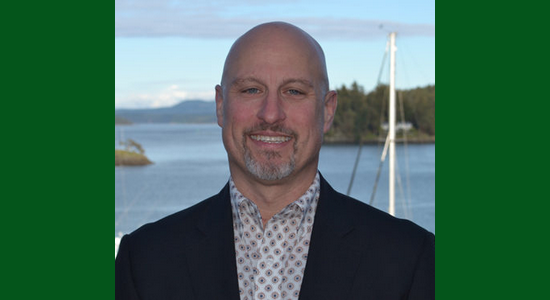–by Alex MacLeod–
Given known facts, it is curious the lengths to which prosecuting attorney Randy Gaylord has gone to cover up his failure to check out a tip that might have kept the county from hiring a sheriff’s detective whose subsequent behavior blew up one sex case and compromised several others.
It is also curious why the county council has assisted Gaylord in this cover-up. The truth is a matter of public record. The council has accepted Gaylord’s argument that saying anything about his failure might compromise the county’s position when it is sued by the Orcas teacher whose case the detective fatally compromised.
Actually, their silence protects Gaylord in his run for re-election.
The simple fact is that Gaylord was asked, in writing, by Sheriff Ron Krebs to check out a report he’d gotten from longtime deputy Jeff Asher that there were troublesome things in Stephen Parker’s past that hadn’t been learned in his pre-employment background checks. (Asher now is running against Krebs for sheriff.) Asher had provided Krebs with the name of the source of the information, which Krebs passed on to Gaylord. This was after Parker had been hired, but before he had reported for duty.
The email from Krebs to Gaylord, sent Dec. 20, 2014, is a public record which anyone can review, as are the other documents and the public hearing referenced below.
Had Gaylord made the call, or made sure his chief deputy had made it, there is a very good chance the hire would have been reconsidered or, at the very least, Parker would have been closely supervised. Either one might have prevented the damage Parker did to the county, and to justice itself.
The information had come from an old friend of Asher’s, who knew Parker when he worked for the Air Force in Montana before leaving to come to San Juan County. His name is Martin Sinclair. When I called Sinclair recently, he said I was the first one from the San Juans he’d heard from, other than Asher.
I found Sinclair to be a careful and deliberate. He made clear distinctions between what he knew first-hand and what he had heard from others. He was in law enforcement before he became a lawyer and then served as a lawyer for the Navy and Air Force, including a tour in Iraq. Parker’s wife worked in the law department with Sinclair at Malmstrom AFB in Great Falls, which is how Sinclair came to know him.
Sinclair said his first call to Asher came after he heard Parker had been hired as a San Juan County detective. “It was just a heads-up call to an old buddy to watch his back,” based on what he knew about Parker. He subsequently expanded that, telling Asher more about what he knew or had heard about Parker. That information is what led to Asher’s warning to Krebs, something Sinclair said he hadn’t intended.
Here is how Krebs summarized the information about Parker in his email to Gaylord: “changing statements, hiding evidence, destroying evidence, fabricating victim statements and other issues…” A call to Sinclair would have led to calls to others, to a military-court case in which Parker was a discredited witness and raised questions about the quality of the earlier pre-hire backgrounding. But no call was made.
In his only public comments to the council about the Parker debacle, Gaylord said: “I’d say we were vigilant in this case…I do not know what I could have done differently.” It turns out he had said something quite different earlier that day in a private meeting with the council — one participant said he told the council about the Asher/Krebs warning —though exactly what he said about it isn’t known. He no longer is answering questions about Parker.
He subsequently wrote two official letters in response to Asher’s complaints that he and Krebs hadn’t told the truth to the council. In those letters, copied to the council, Gaylord denied the existence of Asher’s warning to Krebs, or Kreb’s request for Gaylord to check out the warning. Those were lies that the council, from Gaylord’s executive-session discussion, knew to be lies, yet they remain unwilling to acknowledge that publicly. They will only say their silence does not make them complicit in Gaylord’s attempt to hide his nonfeasance.
There is one other thing Gaylord told the council when he and Krebs testified about the Parker case. “The integrity of the justice system,” he said, “is built first on honesty and truth at every step of the process.” In that, he is right. His actions, however, don’t reflect his words. Voters should take heed.
(Alex MacLeod lives on Shaw Island.)
**If you are reading theOrcasonian for free, thank your fellow islanders. If you would like to support theOrcasonian CLICK HERE to set your modestly-priced, voluntary subscription. Otherwise, no worries; we’re happy to share with you.**








This letter is a monument to the First Amendment, and long may that Amendment prevail.
If, as the writer suggests, the truth he asserts cannot be confirmed without jeopardizing the county’s legal position, why does he now insist that it happen at the expense of the taxpayer? This is false righteousness that cannot in good faith be used to advance political causes, two in this case as the writer points out that Mr. Asher is also a candidate. Whether or not the writer is correct, it betrays a willingness to resort to scorched earth tactics to gain a political end.
Is this to be the tenor of two campaign positions and does it reflect the motivations of those the writer positively portrays?
Alex,
“It turns out he had said something quite different earlier that day in a private meeting with the council — one participant said he told the council about the Asher/Krebs warning —though exactly what he said about it isn’t known.”
Do you have proof of this? If so, it’s not described above.
“He subsequently wrote two official letters in response to Asher’s complaints that he and Krebs hadn’t told the truth to the council.”
To whom were these letters written? Do you have copies?
“Those were lies that the council, from Gaylord’s executive-session discussion, knew to be lies, yet they remain unwilling to acknowledge that publicly. They will only say their silence does not make them complicit in Gaylord’s attempt to hide his nonfeasance.“
How can you know what was discussed in executive session? What is your proof of the content of that discussion? When did it take place? Date? Time? Is there a record of the council going into Executive Session in the minutes? Was there an explanation of the subject matter discussed in Executive Session afterwards?
Finally, is your complaint reduced to alleging that Gaylord erred in judgment by failing to follow up the lead due to an oversight, or that more nefarious reasons exist? If the latter, what would his motive be to intentionally and knowingly not follow up the lead assuming it passed through the channels you allege?
To Bill’s point, is it not fair to question your motive since on the one hand you proffer this as a way to protect the county and its residents while on the other hand you argue to disclose the very “oversight” that may very well cause it and us, indirectly, major harm? (Assuming you’re right)—how would you respond to this?
Logic dictates we know the truth but what to be said of the deliverer’s motives and its practical impact ( if your allegations are supported by proof)?
It’s a bit Machiavellian, no?
“Gaylord was asked, in writing, by Sheriff Ron Krebs to check out a report he’d gotten from longtime deputy Jeff Asher that there were troublesome things in Stephen Parker’s past”, but Asher did not reveal the name of the source at that time. Mr. MacLeod conveniently leaves that fact out of his timeline!
This is the fifth time in four months that Orcas Issues has given Alex MacLeod a platform in his campaign to bring down Randy Gaylord!
See. This is why litigating in a public forum is usually nothing more than political posturing. If Dan is correct, the facts alleged are at a minimum in contention. In law, this is what prevents a “Summary Judgment.” Triable issues of fact still remain after all of this back and forth…this was the point of Bill’s twice well-stated previous points. I’ve certainly tried to read all comments with an open mind but I’m still left with no demonstrable reason to question my vote for Gaylord. Even if he had overlooked a tip about Parker, which hasn’t been proven in this forum, this one unintentional mistake wouldn’t erase all the years of good, reliable service in my mind. We’ll never have a perfect anybody. But, again, we don’t even get to that question with what’s “not” been proven here.
In response to Mr. Christopherson: The email Krebs wrote to Gaylord on Dec. 20, 2015, identifies Asher’s source as Martin Sinclair. I provided Margie Doyle a file with that email and the two letters Mr. Graham asks about when I submitted this article.
In response to Mr. Graham:
1. What proof do I have that Gaylord “said something quite different earlier in the day…”? The word of a council member who was in the meeting.
2.To whom were the two letters written: Gaylord’s letters were addressed to Asher, with copies to the council.
3. If you review the agenda of the Jan. 24, 2017 County Council meeting, you will see indication of an executive session prior to the public presentation by Gaylord and Krebs. As I’ve indicated above, a council member confirmed that Gaylord told them something about Krebs’ warning email to Gaylord. He said he believed it was before the public hearing. He would provide no further details.
The failure of Krebs and Gaylord to follow up on the warnings about Parker is not an insignificant oversight. The damage done by Parker, which likely could have been prevented had anyone called Sinclair, has been substantial: a teacher-student sex crime conviction thrown out, the prosecution of several other child-sex cases seriously compromised and the potential of a multi-million-dollar damage claim against the county and its taxpayers.
The goal of my reporting has simply been to shine a factual light into the performance of the sheriff and the prosecuting attorney so my fellow citizens have meaningful information as they decide how to vote. What they decide is not my interest.
Thanks for your reply, Mr MacLeod.
1. Someone else told you what was said at the ES? How do you “know” if what you were told is true, accurate, complete, or without missing context? Was the ES recorded? Would this be hearsay without independent corroboration?
2. The letters from Gaylord wouldn’t appear to be problematic if #1 above can’t be corroborated; in fact, they would appear to support Gaylord’s position, right?
I appreciate your continued commitment to journalism. While motives and agendas should in a
situation where the facts are black and white, and beyond dispute, be irrelevant; they take on a different hue when opaqueness exists.
My concern as a citizen, taxpayer and resident is that you’re so driven (by virtue of your several
pieces) despite a failure to lay out clear and convincing evidence of what you allege. Do you see what I mean? That’s the only hesitation I have in wondering where you’re coming from—especially given your professional background in Journalism.
Laying this out now before the public without the protections and standards inherent in a trial setting doesn’t seem to me to be a fair basis for arguing against Gaylord’s re-election.
However, as a political campaign against Gaylord, it makes much more sense.
Does that make sense to you?
Mr. MacLeod:
I am curious, the responsibility of the background investigations of a deputy being considered for hire falls to the Sheriff. That said, was there any information contained in your public records request that indicates why there were email exchanges from the Sheriff to the prosecutor to ask for him to look into Parker’s background? This is outside of normal practice.
Additionally, given your quoted statement “The integrity of the justice system,” he (Randy Gaylord) said, “is built first on honesty and truth at every step of the process.” Have you, in your looking into the Sheriff’s Department and Prosecutor’s Office, found any information regarding the hiring and promotion (twice) of a person who was terminated from another agency for lying and placed on the Brady list? This list makes the person, forever, an impeachable witness. Have you discovered any communications between the two offices regarding this issue? It is my understanding SCOTUS requires law enforcement agencies notify district attorneys who are, in turn, required to notify every defense attorney for every case the named officer is involved in.
Thank you for your responses.
On Dec. 20, 2014 (NOT Dec. 20, 2015!), Krebs emailed Gaylord about issues regarding Stephen Parker.
According to the email, Krebs said Asher claimed he was contacted by a friend in Montana.
Krebs was able to guess the identity of the source but said since the name was not confirmed by Asher he did not follow up.
For the source of this, copy and google. Don’t be mislead by Alex MacLeod!
Good questions and observations by Bill Appel, Chris Graham, and Dan Christopherson in response to this (repeat and repeat) “article.” Bottom line; Asher is running against Krebs, Power against Gaylord – looks like just another tiresome garden-variety mudslinging, spin-doctoring-101 election campaign.